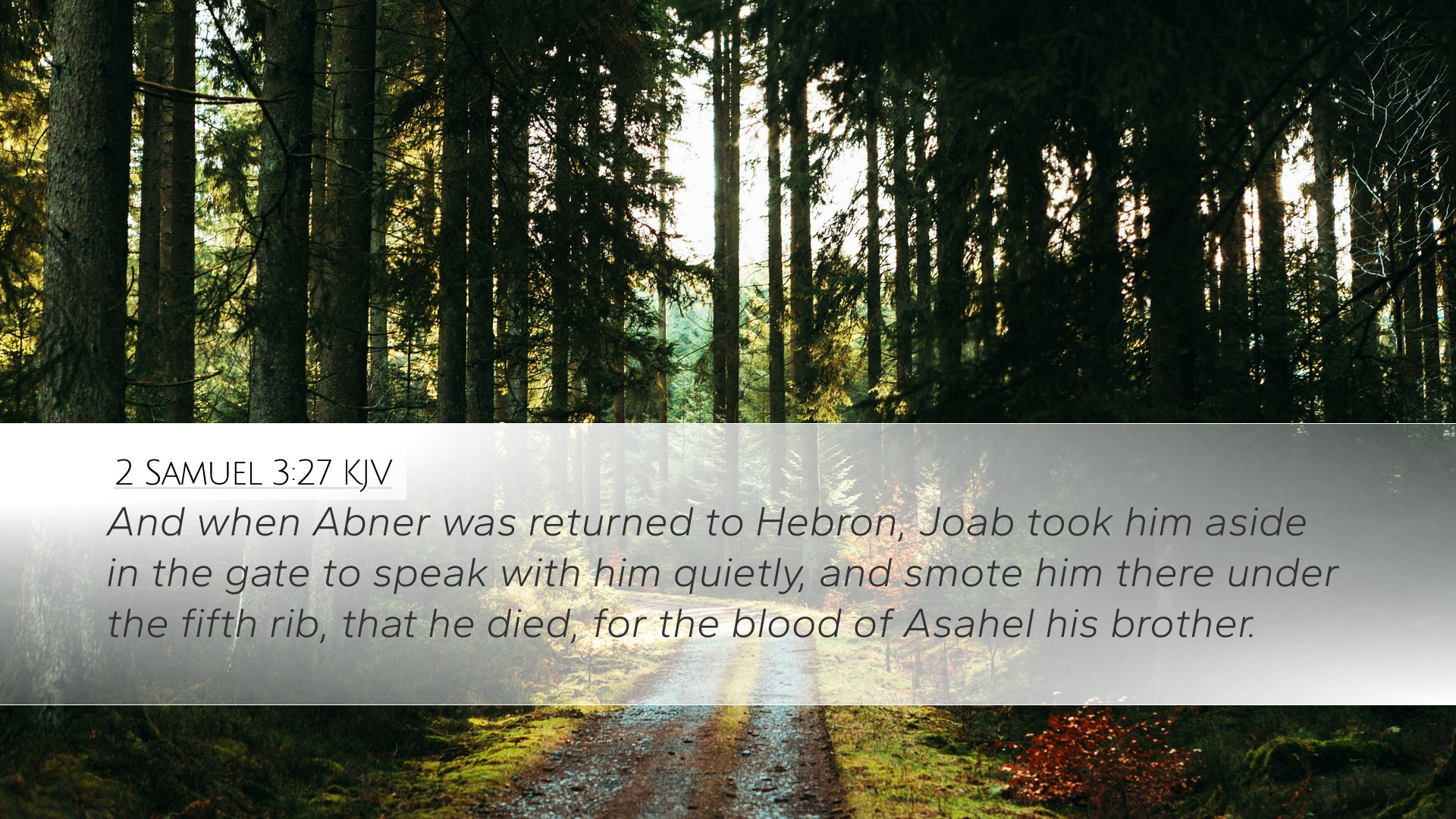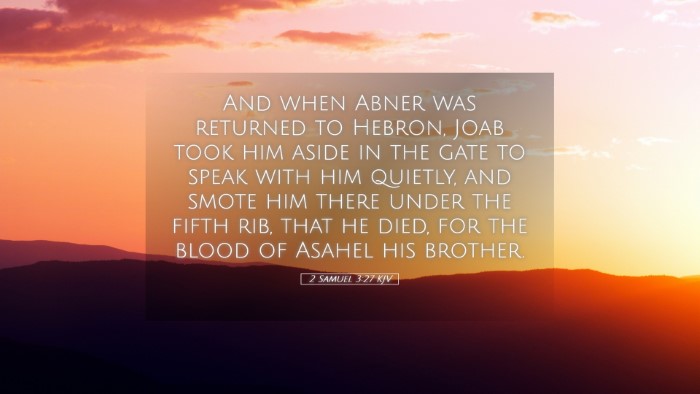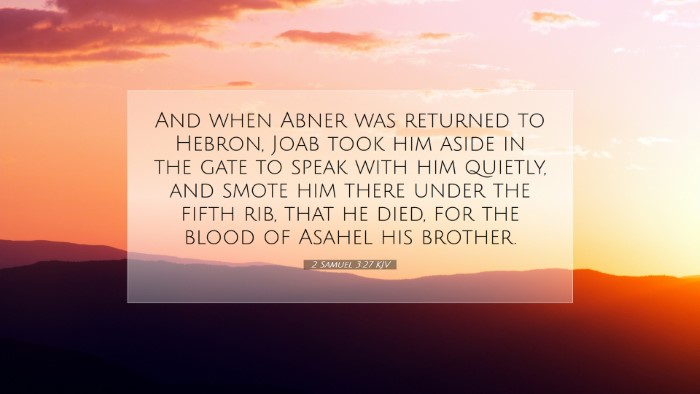Commentary on 2 Samuel 3:27
Bible Verse: "And when Abner was returned to Hebron, Joab took him aside in the gate to speak with him quietly, and smote him there under the fifth rib, that he died, for the blood of Asahel his brother." - 2 Samuel 3:27
Contextual Background
2 Samuel 3:27 occurs within a crucial narrative of the political and military struggles during David's reign as king. Abner, the commander of Saul's forces, was instrumental in the conflict that pitted Saul’s house against David’s. After the death of Saul, Abner initially supported Ishbosheth, Saul's son. However, his motivations for switching allegiance to David are complex and reveal his political acumen.
Joab, on the other hand, is a prominent figure as the commander of David's own military forces. His actions, often driven by a strong sense of loyalty and personal vendetta, frequently highlight the turbulence surrounding David’s ascendency to the throne.
Analysis of Joab's Actions
The act of Joab killing Abner was steeped in both personal revenge and military strategy. According to Matthew Henry, Joab's murder of Abner was not merely an act of vengeance for his brother Asahel's death, but it also represented a deeper ruthlessness that characterized Joab's persona.
Henry posits that this assassination was premeditated, as Joab lured Abner to a private conversation, signifying a deception in his supposed intent to reconcile. This act reveals Joab's nature: a complex figure whose loyalty to David was often overshadowed by his own vendettas.
Albert Barnes adds depth to this analysis, noting that Joab’s motivations were driven by the desire to consolidate David’s power while simultaneously eliminating a formidable rival in Abner. His cold-blooded action was an attempt to send a message of dominance and control over the fragmented factions vying for power during this turbulent time in Israel's history.
Theological Implications
Adam Clarke emphasizes that the violent act of Joab highlights themes of justice and retribution that permeate the Old Testament narrative. The death of Abner not only represents a significant shift in power dynamics but also raises questions regarding God’s sovereignty in the establishment of David’s reign.
Joab's swift and brutal execution of Abner serves as a reminder of the moral complexity within biblical leadership. It allows scholars to grapple with the ethics surrounding David's ascension and the violent means through which it was often achieved. This also leads to a broader discourse on how justice is perceived and enacted in a turbulent moral landscape.
- Retribution and Forgiveness: The narrative invites exploration of vengeance versus reconciliation. Joab's actions sever the potential for peace that could have emerged from Abner's alliance with David.
- Leadership and Morality: Both David's and Joab's leadership styles reveal the challenging moral landscape faced by those in authority. This can be a subject of study regarding the standards of leadership and personal integrity.
- Divine Purpose: The tensions between human action and divine purpose due to Joab's assassination of Abner can prompt exploration into how God utilizes flawed individuals to fulfill His promises.
Conclusion
2 Samuel 3:27 serves as a pivotal moment within the narrative of David’s kingship, encapsulating the violent struggles for power and the personal vendettas that plagued it. The commentaries provided by Henry, Barnes, and Clarke enable theological scholars and students to deeply engage with historical, ethical, and spiritual dimensions of the text.
As pastors and theologians reflect on this verse, they are invited to consider the implications of leadership, the complexities of human motivations, and the overarching narrative of God’s sovereignty amidst human failure and conflict. Ultimately, the tragic end of Abner reminds the faithful of the need for peace and reconciliation, pointing to a divine purpose that transcends human actions.


